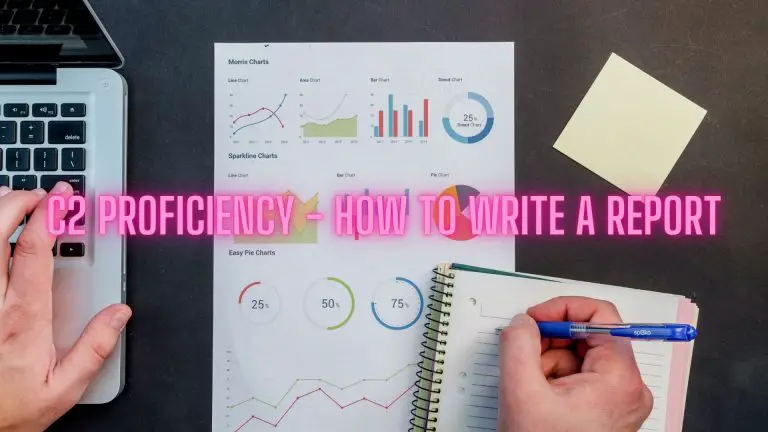Do You Have Problems With Your Reading Skills?
If you’ve come to this article, I guess that you might struggle a little bit with the reading tasks in your exam or you feel that you need to become a faster reader.
Luckily, you’ve come to the right place. First, we’re going to find out what kinds of reading skills are necessary in Cambridge exams and then, we will look at how to improve those skills.
What Reading Skills Do You Need For Cambridge Exams?
OK, before we dive into how to develop your reading skills, it’s really important to understand what specific skills you need for your Cambridge English exam.
No matter if you want to improve for A2 Key, B1 Preliminary, B2 First, C1 Advanced or C2 Proficiency, I believe there are five key abilities that will be your best tools on your journey.
So, let’s take a quick look at each one.
1. Comprehension
First of all, comprehension is the foundation of effective reading. It involves the ability to understand the main ideas and details presented in a text. Cambridge English exams assess how well you can grasp the content of a passage or article.
To be really good at this skill, you must be able to identify the central ideas, key points, and supporting details, which are essential for answering comprehension questions correctly.
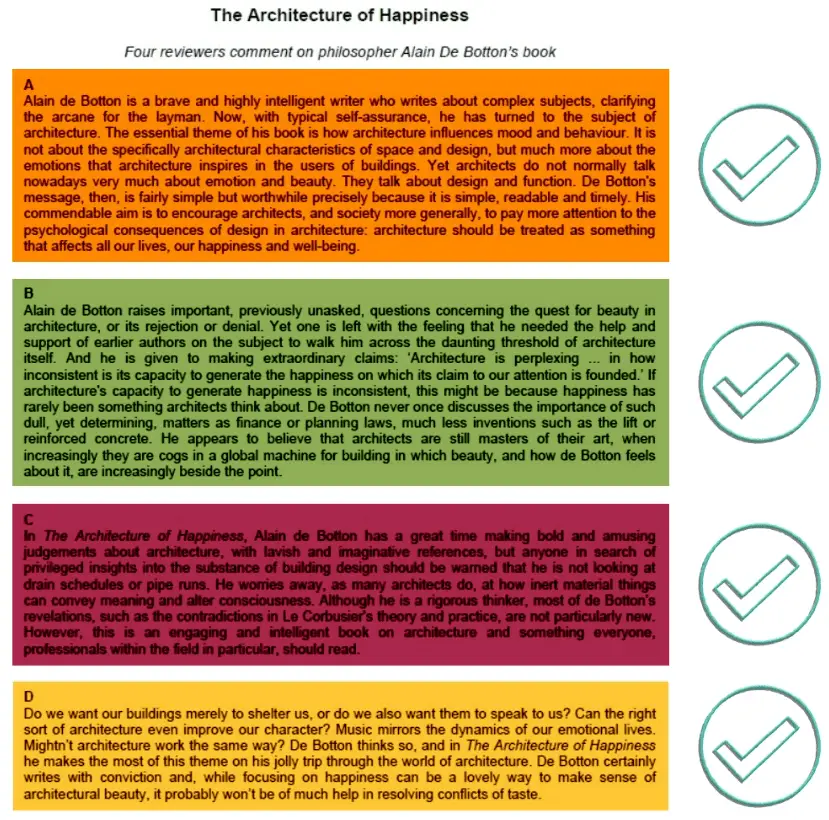
2. Vocabulary
Strong vocabulary is crucial for success in reading. The exams expect you to understand the meaning of words and phrases within the context of a passage.
Building your vocabulary is not only about memorizing words but also about learning how to use them effectively in different contexts. This skill helps you understand unfamiliar terms in the reading material, improving your overall comprehension.
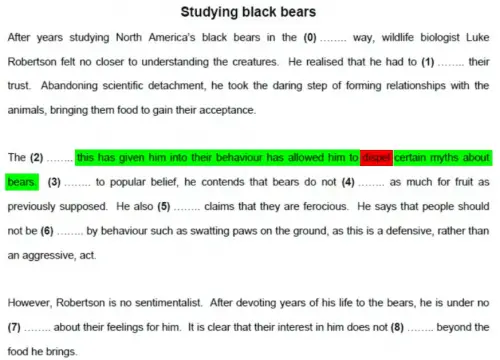
3. Inference
Inference is the skill of making educated guesses about information that a text doesn’t explicitly talk about.
Cambridge exams often require you to draw conclusions and to read between the lines in order to understand implicit meanings based on clues in the text, especially in the higher-level tests like C1 Advanced or C2 Proficiency.
Developing strong inference skills allows you to answer questions that go beyond the superficial information provided in a text.
4. Skimming and Scanning
Skimming and scanning are absolute key techniques for Cambridge exams with their nasty time limits.
Skimming means to quickly read through a text to get the main idea, while scanning means looking for specific details.
These strategies help you efficiently locate information within a text and they are particularly useful for tasks like matching texts to questions.
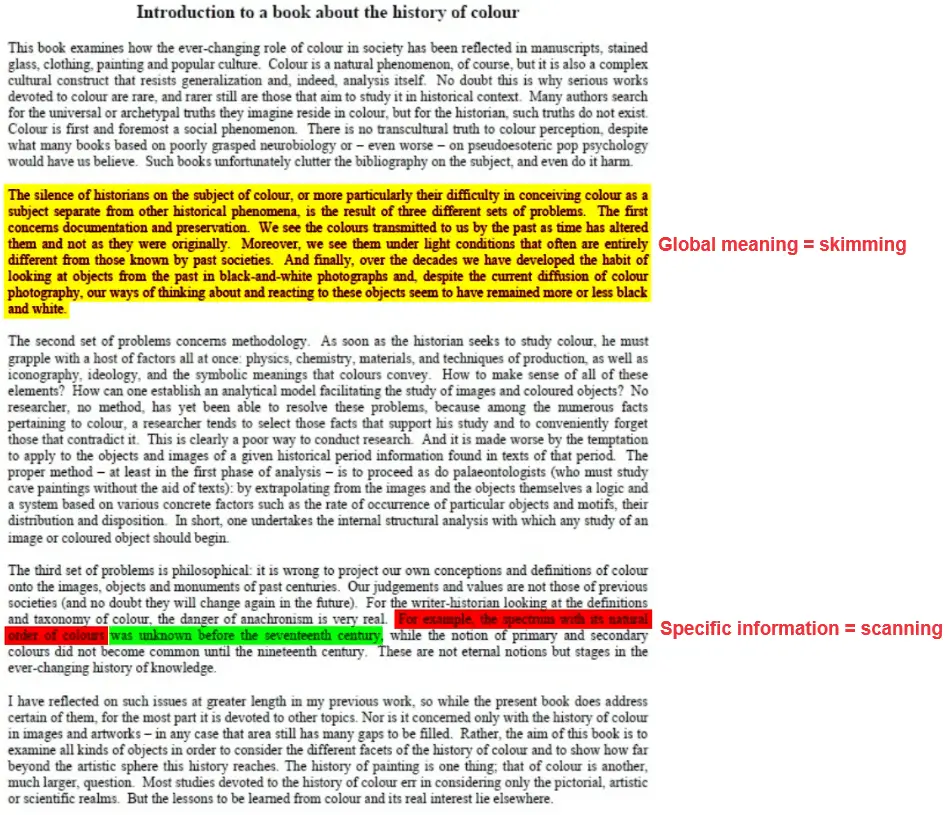
5. Critical Thinking
Last but not least, critical thinking is an important skill in Cambridge exams that assess your ability to analyse the author’s purpose, tone, and perspective. It goes beyond understanding the content; it’s about evaluating the text critically.
Being able to identify attitudes or the author’s intended message can be super important, especially from B2 First onwards. There, you need to show that you can compare the things different people say and draw conclusions from what you read.
6 Tips To Develop Your Reading Skills
Alright, these are the most important skills you need to ace your reading exam, but now the question is how we can improve them. Luckily, there are some great techniques and practices you can use to get better, so let’s check them out.
1. Regular Practice
Consistency is key when it comes to improving reading skills. Set aside dedicated time for regular reading practice.
Start with texts that match your current proficiency level, and progressively challenge yourself with more complex materials as you become more comfortable.
Reading consistently not only strengthens your understanding of the language but also builds your reading stamina. Nowadays, people don’t read anything longer than a Whatsapp message so you need to practise longer texts regularly. This, in turn, will help you stay focused and attentive during the entire duration of your Cambridge English exam.
Remember, practice makes perfect.
2. Use Diverse Reading Materials
Expanding your reading repertoire is crucial for developing a broad range of language skills. Don’t limit yourself to just one type of text; explore different genres and styles.
Reading newspapers, for example, keeps you up-to-date with current events and exposes you to formal language. Magazines offer a more casual and varied vocabulary. Novels provide insights into storytelling and character development. Academic articles challenge you with complex content. And online content like blogs and social media shows you contemporary language usage.
Diverse reading ensures you encounter various writing styles and vocabulary, preparing you for the variety of texts you’ll encounter in your exams.
3. Active Reading And Annotation
Active reading transforms the act of reading from a passive experience into an interactive one. As you read, underline or highlight key information within the text. This practice draws your attention to essential points and makes them easier to revisit when needed.
Furthermore, jotting down notes in the margins or in a separate notebook allows you to record your insights, questions, and summaries. This not only reinforces your understanding of the material but also provides a valuable reference for later review.
By engaging with the text, you become an active participant, which improves comprehension, critical thinking, and retention of the material.
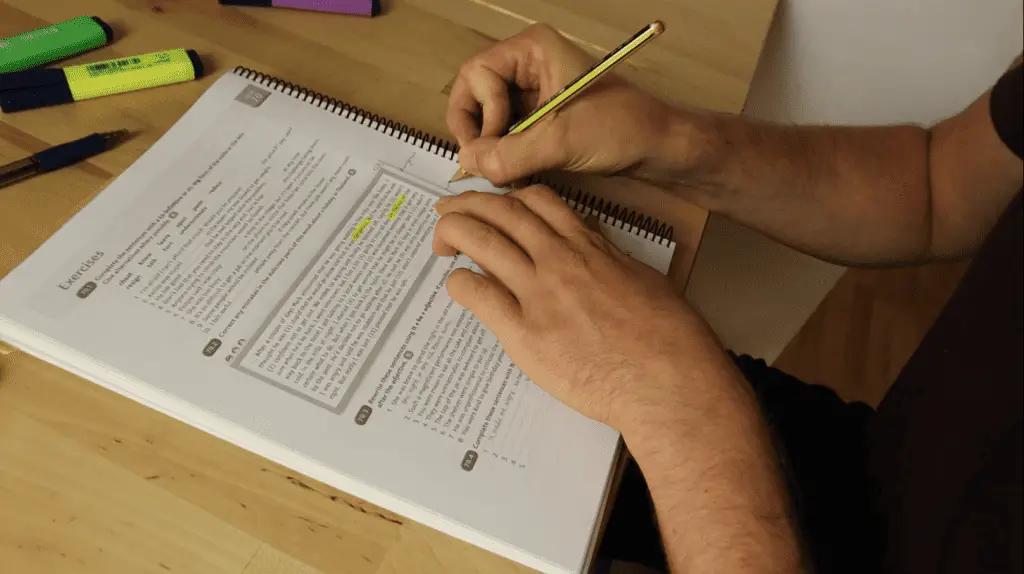
4. Context Clues For Inference
Inference, the ability to make educated guesses based on context clues, is a critical skill for understanding texts, especially when dealing with unfamiliar words or implied meanings.
When you encounter a word or phrase you don’t know, pay attention to the sentences around it. Often, the context provides hints about the word’s meaning.
This strategy doesn’t just apply to vocabulary; it’s also useful for understanding implied information in the text.
Developing your inference skills enables you to navigate texts with confidence, even when you encounter unfamiliar elements, making your reading experience smoother and more insightful.
5. Vocabulary Journal
Building a robust vocabulary is vital for successful reading. Keep a vocabulary journal to record unfamiliar words you encounter during your reading sessions. For each word, write down its meaning, and try to incorporate it into sentences. This practice helps you remember new words and understand how they are used in context.
A rich vocabulary enhances your ability to comprehend the text because you can grasp the meanings of words and phrases with ease. Over time, your vocabulary journal will become a valuable resource for enhancing your language skills.

6. Practice Cambridge Exam Materials
To truly prepare for your Cambridge English exam, it’s essential to work with practice materials. These materials are specifically designed to mimic the types of questions and tasks you’ll encounter on the exam.
By engaging with practice tests and past exam papers, which you can find online if you google them, you become familiar with the format and structure of the exam, which can help alleviate anxiety and improve your performance.
It’s an opportunity to put your reading skills to the test under conditions similar to the actual exam. Plus, reviewing your responses allows you to identify areas for improvement and refine your reading strategies accordingly.
Again, practice is a key element in achieving success.
7. Extensive Reading
By reading extensively, you reinforce vocabulary, improve reading speed, and become more comfortable with the language.
This habit not only makes reading more enjoyable but also indirectly benefits your exam preparation by making you a more confident and efficient reader. Your brain automatically absorbs new language while you’re enjoying a good read.
It’s a great way to balance your exam-focused reading with a love for the language itself.
You can have a look at Amazon where there are a lot of graded readers available. Graded readers are books whose language level is adjusted to, for example, B1 or B2 so everyone can read for pleasure in English.
Click here to find graded readers on Amazon.
Summary
And there you have it!
Developing strong reading skills for your Cambridge English exam is all about active engagement, diverse reading, consistent practice, vocabulary building, and mastering inference techniques.
Remember, Rome wasn’t built in a day, so be patient with yourself and keep working on these skills.
Of course, you can leave a comment if you have any good tips or ideas you want to share with the Teacher Phill community and check out my video on YouTube.




